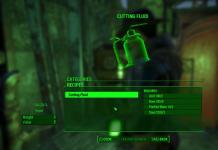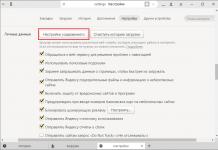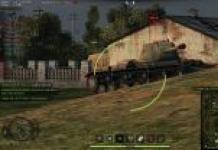There are a number of similarities between the Ukrainian and Russian languages, primarily in lexicology and pronunciation. Knowing one language, it is quite easy to understand the general meaning of the speech of a person speaking another of this pair of languages. However, in our time, it is not enough to simply understand Ukrainian speech; you must be able to correctly express your thoughts on paper, that is, write in Ukrainian. This may prove difficult. In order to cope with this task, you can enlist the support of our online service. With its help, a network user can easily make automatic translation into or from Ukrainian.
The Old Russian dialect gave rise to a lot of modern Slavic languages. Among them, the Ukrainian, Belarusian and Russian languages remained especially close. The modern Ukrainian language was formed from a number of dialects, incorporating elements of other Slavic languages. Therefore, in different regions of this country there are a number of independent dialects and adverbs that are very close to each other, but have some differences due to the influence of a particular language or languages on its development in this region.
The close relationship of the language makes possible high quality online translation of texts. Therefore, even professional translation can be easily accomplished using our service!
Our online translator has the following advantages:
When translating Russian-Ukrainian, the peculiarities of the language are taken into account. Existing phraseological units, grammatical categories, modifications of linguistic forms.
Speed of translation. You just need to paste the text into the top window and wait a few seconds. After their expiration, a transfer is obtained.
Ability to translate both from and into Ukrainian.
No time reference. You can use this online service at any time of the day and on any day.
Some tips for beginners in translating from Russian into Ukrainian:
For maximum accuracy and correctness of translation, try to simplify the original text. You can remove rarely used words and introductory constructions, abandon jargon and abbreviations, and break cumbersome and complex sentences into simpler ones. Of course, it is permissible to carry out such actions only if it does not affect the meaning of the text. When translating a passage, any work or document, you should not simplify anything.
Check the text for errors and typos, as the electronic translator will not recognize and will not translate misspelled words correctly. Punctuation, spelling and stylistics are three reasons due to which inaccuracy in translation may occur.
You need to check punctuation, especially at the end of sentences. If a point is missed or placed in the wrong place, the translation may be significantly distorted.
Entering text and selecting translation direction
Source text on Russian language you need to print or copy into the top window and select the translation direction from the drop-down menu.For example, for Russian-Ukrainian translation, you need to enter text in Russian in the top window and select the item with from the drop-down menu Russian, on Ukrainian.
Next you need to press the key Translate, and you will receive the translation result under the form - Ukrainian text.
Specialized dictionaries of the Russian language
If the source text for translation relates to a specific industry, select the topic of a specialized Russian lexical dictionary from the drop-down list, for example, Business, Internet, Laws, Music and others. By default, the dictionary of general Russian vocabulary is used.Virtual keyboard for Russian layout
If Russian layout not on your computer, use the virtual keyboard. The virtual keyboard allows you to enter letters of the Russian alphabet using the mouse.Translation from Russian.
The main language problem when translating from Russian into Ukrainian is the inability to achieve economical language means, since the Russian language is oversaturated with frequent abbreviations and polysemantic words. At the same time, many long Russian sayings are translated into one or two words in Ukrainian dictionaries.When translating text from Russian, the translator needs to use words not only from the active vocabulary, but also use language constructs from the so-called passive vocabulary.
As with any other language, when translating Russian text, remember that your task is to convey the meaning, and not to translate the text word for word. It is important to find in the target language - Ukrainian- semantic equivalents, rather than selecting words from the dictionary.
Entering text and selecting translation direction
Source text on Ukrainian language you need to print or copy into the top window and select the translation direction from the drop-down menu.For example, for Ukrainian-Russian translation, you need to enter text in Ukrainian in the top window and select the item with from the drop-down menu Ukrainian, on Russian.
Next you need to press the key Translate, and you will receive the translation result under the form - Russian text.
Specialized dictionaries of the Ukrainian language
If the source text for translation relates to a specific industry, select the topic of a specialized Ukrainian lexical dictionary from the drop-down list, for example, Business, Internet, Laws, Music and others. By default, the dictionary of general Ukrainian vocabulary is used.Virtual keyboard for Ukrainian layout
If Ukrainian layout not on your computer, use the virtual keyboard. The virtual keyboard allows you to enter letters of the Ukrainian alphabet using the mouse.Translation from Ukrainian.
The modern Ukrainian literary language has 38 phonemes, 6 vowels and 32 consonants. When translating from Ukrainian into Russian, it is necessary to take into account that the vocabulary mainly contains words of common Slavic origin. However, there are also many words that were formed in the Ukrainian language during the period of its independent historical development; there are borrowings from other languages, not necessarily from Russian.Ukrainian language is one of the most beautiful languages in the world. Among all languages, the Ukrainian language ranks second after Italian in terms of melody.
As with any other language, when translating Ukrainian text, remember that your task is to convey the meaning, not to translate the text word for word. It is important to find in the target language - Russian- semantic equivalents, rather than selecting words from the dictionary.
Entering text and selecting translation direction
Source text on Ukrainian language you need to print or copy into the top window and select the translation direction from the drop-down menu.For example, for Ukrainian-Russian translation, you need to enter text in Ukrainian in the top window and select the item with from the drop-down menu Ukrainian, on Russian.
Next you need to press the key Translate, and you will receive the translation result under the form - Russian text.
Specialized dictionaries of the Ukrainian language
If the source text for translation relates to a specific industry, select the topic of a specialized Ukrainian lexical dictionary from the drop-down list, for example, Business, Internet, Laws, Music and others. By default, the dictionary of general Ukrainian vocabulary is used.Virtual keyboard for Ukrainian layout
If Ukrainian layout not on your computer, use the virtual keyboard. The virtual keyboard allows you to enter letters of the Ukrainian alphabet using the mouse.Translation from Ukrainian.
The modern Ukrainian literary language has 38 phonemes, 6 vowels and 32 consonants. When translating from Ukrainian into Russian, it is necessary to take into account that the vocabulary mainly contains words of common Slavic origin. However, there are also many words that were formed in the Ukrainian language during the period of its independent historical development; there are borrowings from other languages, not necessarily from Russian.Ukrainian language is one of the most beautiful languages in the world. Among all languages, the Ukrainian language ranks second after Italian in terms of melody.
As with any other language, when translating Ukrainian text, remember that your task is to convey the meaning, not to translate the text word for word. It is important to find in the target language - Russian- semantic equivalents, rather than selecting words from the dictionary.
Welcome to the Ukrainian - Russian dictionary. Please write the word or phrase you want to check in the text box on the left.
Recent Changes
Glosbe is home to thousands of dictionaries. We offer not only a Ukrainian - Russian dictionary, but also dictionaries for all existing pairs of languages - online and free. Visit our website home page to choose from available languages.
Translation Memory
Glosbe dictionaries are unique. On Glosbe you can see not only translations into Ukrainian or Russian: we provide usage examples, showing dozens of examples of translated sentences containing translated phrases. This is called "translation memory" and is very useful for translators. You can see not only the translation of a word, but also how it behaves in a sentence. Our memory of translations comes mainly from parallel corpora that were made by people. This kind of sentence translation is a very useful addition to dictionaries.
Statistics
We currently have 75,952 translated phrases. We currently have 5,729,350 sentence translations
Cooperation
Help us in creating the largest Ukrainian - Russian dictionary online. Just log in and add a new translation. Glosbe is a joint project and everyone can add (or delete) translations. This makes our Ukrainian Russian dictionary real, since it is created by native speakers who use the language every day. You can also be sure that any dictionary error will be corrected quickly, so you can rely on our data. If you find a bug or you are able to add new data, please do so. Thousands of people will be grateful for this.
You should know that Glosbe is not filled with words, but with ideas about what those words mean. Thanks to this, by adding one new translation, dozens of new translations are created! Help us develop Glosbe dictionaries and you will see how your knowledge helps people around the world.


